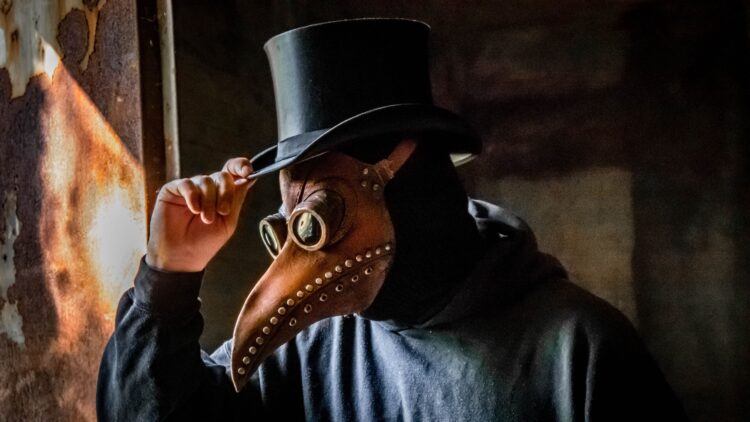Today, there are countless external factors that affect your overall health and well-being. They include things like your environment, stress levels, and overall nutrition. But there’s something else playing a part you likely weren’t aware of.
Roughly 700 years ago, The Black Plague swept across Europe and nearly wiped out the entire continent. The effects of that epidemic are still being felt today and still have a surprising effect on our overall health and wellness .
There are plenty of external factors that affect your health today.

Experts say that physical activity and nutrition play the biggest part in keeping us healthy. They can prevent/delay certain cancers, as well as help prevent heart disease.
Obesity and being overweight come in at a close second.

Obesity brings with it a whole new myriad of problems. People who are overweight are far more likely to suffer a stroke and contract coronary heart disease —as well as a slew of respiratory problems.
Finally, tobacco use is said to be the single greatest preventable cause of illness and premature death in the United States.

Worldwide, tobacco has killed more than 1 billion people and today it is responsible for 1 in every 5 male deaths.
But there’s something else that may be affecting your health — something that occurred more than 700 years ago.

The Black Plague (commonly referred to as ” The Black Death “) was an epidemic that swept across Europe in the mid-1300s.
From 1347 until 1351, it is estimated that between 30-50% of the continent of Europe was wiped out.

Researchers say that as many as 200 million people may have died as a result of plague-related illnesses. It is regarded as one of the deadliest moments in human history.
Researchers hypothesize that The Black Plague was so significant that it actually affected human evolution.

Scientists studied the remains from 206 ancient skeletons and focussed on a gene called ERAP2. In a nutshell, if a human being alive at the time had the right mutation of ERAP2, they were 40% more likely to survive the plague .
“That’s huge, it’s a huge effect, it’s a surprise to find something like that in the human genome,” Professor Luis Barreiro told the ‘BBC’.

The whole point of this gene is to attempt to chop up invasive microbes and present the fragments to the immune system.
These fragments help our immune system to better recognize and neutralize the attack.

Each parent passes on a copy of the gene to their offspring. Some of them work well at eradicating the risk, while others, unfortunately, do not.
Therefore, those who were most likely to survive the plague were those who inherited a high-functioning gene from both parents.

Those children had children, and so on and so forth. As the centuries passed, these mutations became much more common.
“It’s huge we see a 10% shift over two to three generations, it’s the strongest selection event in humans to date,” evolutionary geneticist Professor Hendrik Poinar explains.

In order to confirm the results, a modern-day experiment was conducted using the plague bacterium (Yersinia pestis). it was mixed with human blood samples from those who possessed the helpful gene and others who did not.
Just as hypothesized, those who possessed the helpful gene were able to ward off the plague.

“It’s like watching ‘The Black Death’ unfold in a petri-dish — that’s eye-opening,” said Professor Poinar. Today, those plague-resistant mutations are much more apparent than they were 700 years ago.
However, that same helpful gene has been linked to auto-immune diseases such as Crohn’s.

Paradoxically, what helped keep our ancestors alive 700 years ago may actually be making us sick today. There are also other historic factors, such as our ancestors mating with Neanderthals, that affect how our bodies respond to diseases, like COVID-19.
“So those scars from the past still impact our susceptibility to disease today, in a quite remarkable way,” Prof Barreiro said.

However, it is highly unlikely that COVID-19 will affect human evolution in the same way that The Black Plague did.
Unlike The Black Plague, COVID-19 affected the elderly more than any other demographic.

Evolution works through the passing of genes. Since most elderly people are already past the point of having children, their anti-resistant genes won’t be passed on to the subsequent generation.
What made The Black Death so unique was its ability to kill across age demographics.

To date, roughly 6.5 million people have died from COVID-19 worldwide. That number doesn’t even equal 3.5% of all those who died during the time of The Black Plague.

















































